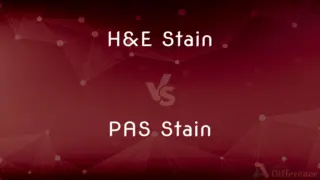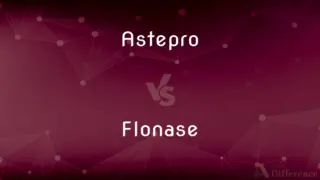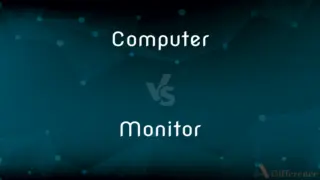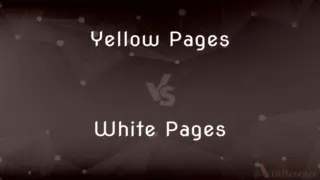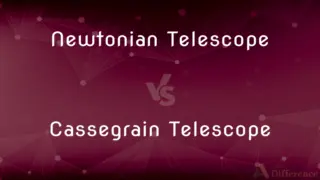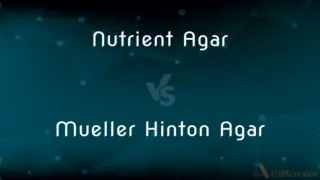Rescind vs. Withdraw — What's the Difference?
By Urooj Arif & Fiza Rafique — Updated on April 1, 2024
Rescind involves formally revoking, canceling, or repealing a decision, agreement, or law, typically by official means. Withdraw refers to pulling back or removing something or oneself from a situation, commitment, or location.

Difference Between Rescind and Withdraw
Table of Contents
ADVERTISEMENT
Key Differences
Rescind is a term often used in legal, contractual, or formal settings to indicate the nullification or reversal of a previously made decision, law, or agreement. This action usually requires authority or consensus from the parties involved and can be seen as retracting a previously valid statement or regulation. Withdraw, on the other hand, implies a retreat or removal from a particular situation, place, or agreement, and can be done by an individual or entity on a more voluntary basis, without necessarily involving formal reversal procedures.
While rescind is specifically about negating or voiding an existing decision or agreement, withdraw encompasses a broader range of actions including pulling out funds from a bank, retracting one's participation in an event, or even removing oneself from a location. Withdrawal can be temporary or permanent, depending on the context and intention behind the action.
The act of rescinding is often final, aiming to erase the validity of what's being rescinded as if it never existed. For example, rescinding a law means that legally, the law ceases to have effect. On the other hand, withdrawing something like a statement or an offer does not always imply it never existed; instead, it means it is no longer currently on the table or being considered.
In some contexts, both terms can intersect, such as in the withdrawal of a job offer; legally, this might be considered rescinding the offer. However, the nuances between them lie in the implications and processes involved. Rescinding typically involves a formal decision-making process and is definitive, whereas withdrawing might be a more personal or immediate action, less encumbered by formalities.
Actions leading to rescinding are often driven by the discovery of new information, errors, or reevaluations of existing agreements or laws, necessitating an official annulment. Withdrawal actions are usually motivated by changes in circumstances, preferences, or strategies, allowing for more flexibility in approach and implementation.
ADVERTISEMENT
Comparison Chart
Definition
To formally revoke or annul.
To pull back, remove, or retreat.
Context
Legal, contractual, official settings.
Broad, including personal decisions.
Action
Nullifies the validity of something.
Removes something or oneself.
Finality
Often final and as if it never existed.
Can be temporary or permanent.
Motivation
New information, errors, reevaluations.
Changes in circumstances, preferences.
Formality
Requires formal procedures.
Can be informal or formal.
Example Usage
Rescinding a law or agreement.
Withdrawing an offer or leaving a place.
Compare with Definitions
Rescind
To formally cancel or revoke a decision or agreement.
The company decided to rescind the termination notice in light of new evidence.
Withdraw
To take back or remove something that was previously available.
The author decided to withdraw his manuscript from the publisher.
Rescind
Often used in legal and official documents.
The council voted to rescind the previous zoning decision.
Withdraw
Involves pulling out of an agreement or commitment.
She decided to withdraw her application from the college.
Rescind
Implies a reversal of a formal action.
Due to the public outcry, the policy was quickly rescinded.
Withdraw
Can signify leaving a place or position.
After the scandal, the senator chose to withdraw from the race.
Rescind
Requires authority or consensus.
Only the board has the power to rescind that decision.
Withdraw
Can be a strategic or personal decision.
The company withdrew its offer after considering other candidates.
Rescind
Can refer to the annulment of laws.
The legislature moved to rescind the outdated statute.
Withdraw
May refer to the act of removing funds from a bank account.
He went to the bank to withdraw cash for the trip.
Rescind
To make void; repeal or annul.
Withdraw
Remove or take away (something) from a particular place or position
She prised open the lid and withdrew a slim diamond ring
Ruth withdrew her hand from his
Rescind
(transitive) To repeal, annul, or declare void; to take (something such as a rule or contract) out of effect.
The agency will rescind the policy because many people are dissatisfied with it.
Withdraw
Leave or cause to leave a place or situation
UN forces withdrew from the province
Both countries agreed to withdraw their troops
Rescind
(transitive) To cut away or off.
Withdraw
Cease to take an addictive drug
For the cocaine user, it is possible to withdraw without medication
Rescind
To cut off; to abrogate; to annul.
The blessed Jesus . . . did sacramentally rescind the impure relics of Adam and the contraction of evil customs.
Withdraw
To take back or away; remove
Withdrew his hand from the cookie jar.
Rescind
Specifically, to vacate or make void, as an act, by the enacting authority or by superior authority; to repeal; as, to rescind a law, a resolution, or a vote; to rescind a decree or a judgment.
Withdraw
To cause to leave or return
The government withdrew its diplomats from the capital.
Withdraw
To remove (money) from an account.
Withdraw
To turn away (one's gaze, for example).
Withdraw
To draw aside
Withdrew the curtain.
Withdraw
To remove from consideration or participation
Withdrew her application.
Withdrew his son from the race.
Withdraw
To recall or retract
Withdrew the accusation.
Withdraw
To move or draw back; retire
The lawyers withdrew to the judge's chambers.
Withdraw
To leave or return, as from a military position.
Withdraw
To remove oneself from active participation
Withdrew from the competition.
Withdraw
To become detached from social or emotional involvement
After the snubbing, he withdrew into a shell.
Withdraw
To recall or remove a motion from consideration in parliamentary procedure.
Withdraw
To discontinue the use of a drug or other substance, especially one that is addictive.
Withdraw
To react physiologically and mentally to this discontinuance, often while experiencing distressing symptoms.
Withdraw
(transitive)
Withdraw
To draw or pull (something) away or back from its original position or situation.
Withdraw
To take away or take back (something previously given or permitted); to remove, to retract.
Withdraw
To cause or help (someone) to stop taking an addictive drug or substance; to dry out.
Withdraw
To take (one's eyes) off something; to look away.
Withdraw
(figuratively)
Withdraw
To distract or divert (someone) from a course of action, a goal, etc.
Withdraw
To extract (money) from a bank account or other financial deposit.
Withdraw
(intransitive)
Withdraw
Chiefly followed by from: to leave a place, someone's presence, etc., to go to another room or place.
Withdraw
Chiefly followed by from: to stop taking part in some activity; also, to remove oneself from the company of others, from publicity, etc.
Withdraw
To stop talking to or interacting with other people and start thinking thoughts not related to what is happening.
Withdraw
To stop taking an addictive drug or substance; to undergo withdrawal.
Withdraw
Of a man: to remove the penis from a partner's body orifice before ejaculation; to engage in coitus interruptus.
Withdraw
An act of drawing back or removing; a removal, a withdrawal or withdrawing.
Withdraw
(law) withdraught
Withdraw
To take back or away, as what has been bestowed or enjoyed; to draw back; to cause to move away or retire; as, to withdraw aid, favor, capital, or the like.
Impossible it is that God should withdraw his presence from anything.
Withdraw
To take back; to recall or retract; as, to withdraw false charges.
Withdraw
To retire; to retreat; to quit a company or place; to go away; as, he withdrew from the company.
Withdraw
Pull back or move away or backward;
The enemy withdrew
The limo pulled away from the curb
Withdraw
Withdraw from active participation;
He retired from chess
Withdraw
Release from something that holds fast, connects, or entangles;
I want to disengage myself from his influence
Disengage the gears
Withdraw
Cause to be returned;
Recall the defective auto tires
The manufacturer tried to call back the spoilt yoghurt
Withdraw
Take back what one has said;
He swallowed his words
Withdraw
Keep away from others;
He sequestered himself in his study to write a book
Withdraw
Break from a meeting or gathering;
We adjourned for lunch
The men retired to the library
Withdraw
Retire gracefully;
He bowed out when he realized he could no longer handle the demands of the chairmanship
Withdraw
Remove (a commodity) from (a supply source);
She drew $2,000 from the account
The doctors drew medical supplies from the hospital's emergency bank
Withdraw
Lose interest;
He retired from life when his wife died
Withdraw
Make a retreat from an earlier commitment or activity;
We'll have to crawfish out from meeting with him
He backed out of his earlier promise
The aggressive investment company pulled in its horns
Common Curiosities
What does it mean to rescind an offer?
Rescinding an offer means officially revoking or canceling it, making it as if the offer was never made.
Is withdrawing from a competition the same as rescinding participation?
Withdrawing is the act of backing out, which can be done by the participant, while rescinding participation would imply a formal cancellation or annulment of their entry, often by the organizers.
Can a decision be both rescinded and withdrawn?
Yes, in some contexts, especially informal ones, the terms can be used interchangeably, though "rescind" is more formal.
What does withdrawing a product from the market mean?
It means the company removes the product from sale, possibly due to safety concerns, poor sales, or other reasons.
Is it possible to withdraw a statement?
Yes, one can withdraw a statement, meaning they retract it or take it back, often informally.
How does one formally rescind a legal document?
Formal rescission involves legal procedures, including notification to all parties involved and possibly the filing of specific forms or documents with a court or governing body.
How does withdrawing from a contract differ from rescinding it?
Withdrawing from a contract typically means one party backs out, possibly according to terms within the contract, while rescinding a contract means nullifying it entirely, as if it never existed.
Can a law be withdrawn or only rescinded?
Laws are rescinded or repealed, not withdrawn, as the process involves formal revocation by a legislative body.
How do organizations typically rescind policies?
Organizations rescind policies through formal review and decision-making processes, often requiring approval from governing bodies or executives.
Is withdrawing from a course similar to rescinding enrollment?
Withdrawing from a course is the act of the student choosing to leave the course, while rescinding enrollment would typically involve formal annulment by the institution, though the terms can sometimes be used interchangeably in this context.
Can an individual rescind their own decision?
Yes, an individual can rescind their own decision, especially if it involves formal or legal implications, by formally declaring the reversal.
What happens if a job offer is rescinded?
If a job offer is rescinded, it means the offer of employment is formally cancelled and is no longer valid.
Can a withdrawal be considered a form of protest?
Yes, withdrawing from an event, agreement, or position can be used as a form of protest or dissent.
What legal actions can follow rescinding a contract?
Rescinding a contract may lead to legal actions such as restitution or damages if the rescission is contested or involves breach of agreement.
Does withdrawing consent require formal documentation?
Depending on the context, withdrawing consent can be as simple as a verbal notification or may require formal documentation, especially in legal or medical situations.
Share Your Discovery

Previous Comparison
Citadel vs. Fortress
Next Comparison
Longitudinal vs. HorizontalAuthor Spotlight
Written by
Urooj ArifUrooj is a skilled content writer at Ask Difference, known for her exceptional ability to simplify complex topics into engaging and informative content. With a passion for research and a flair for clear, concise writing, she consistently delivers articles that resonate with our diverse audience.
Co-written by
Fiza RafiqueFiza Rafique is a skilled content writer at AskDifference.com, where she meticulously refines and enhances written pieces. Drawing from her vast editorial expertise, Fiza ensures clarity, accuracy, and precision in every article. Passionate about language, she continually seeks to elevate the quality of content for readers worldwide.














